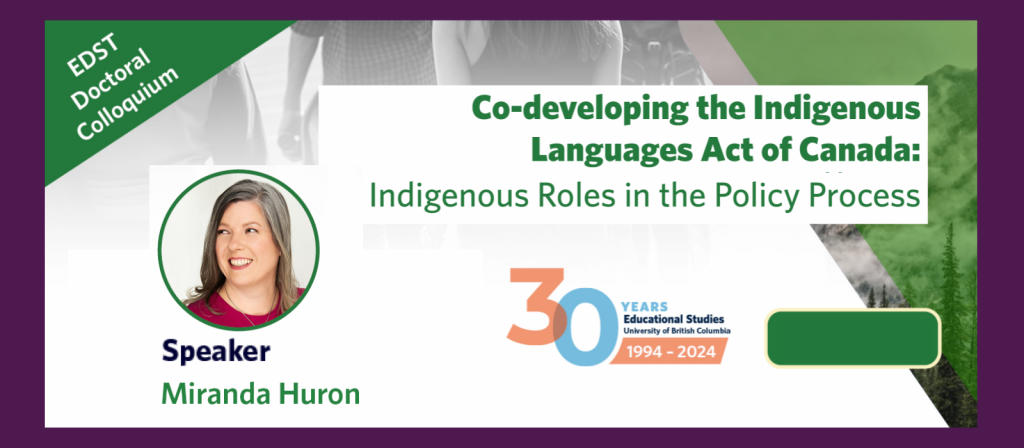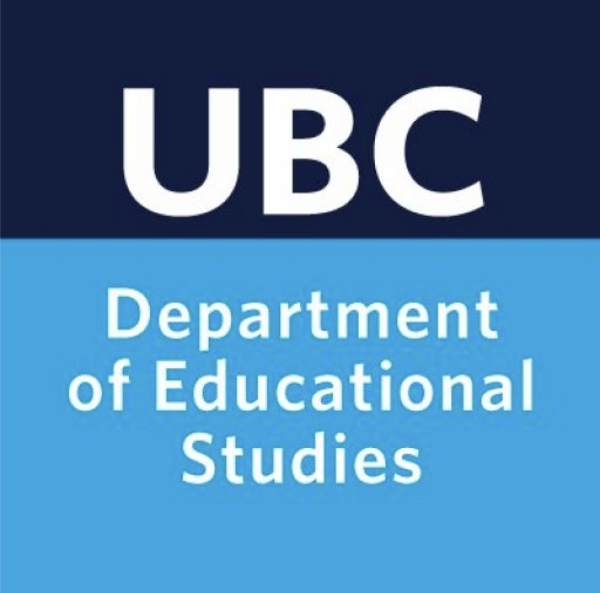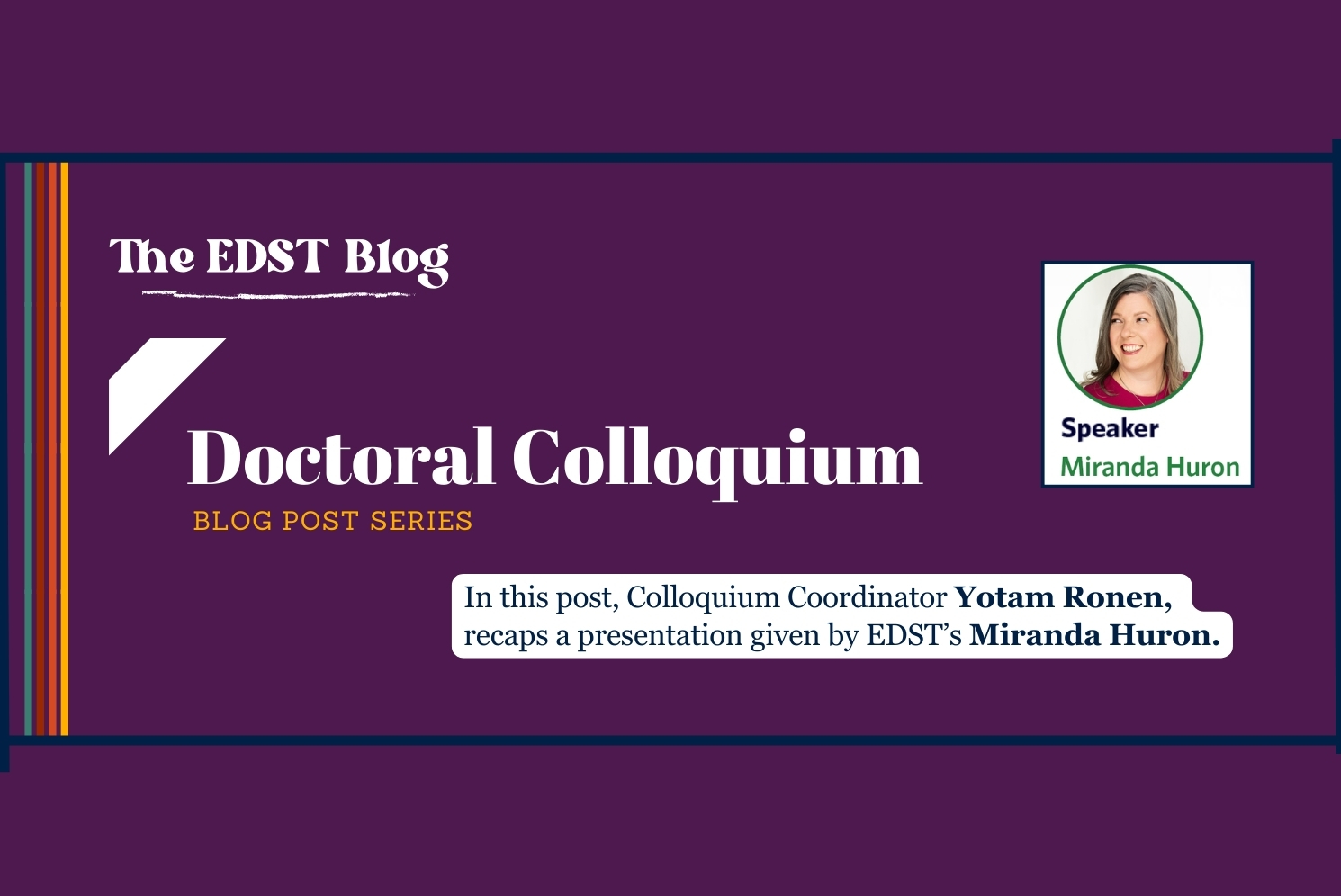In October 2023, EDST began hosting a Doctoral Colloquium. Once a month doctoral students and candidates present their research to EDST students, staff and faculty.
In this blog post:
Doctoral Colloquium coordinator, Yotam Ronen, recaps Miranda Huron’s Colloquium.

What does the process of policy making look like when Indigenous people are involved? How do Indigenous actors perceive policy processes, and how much agency do they really have in developing policy that works for them?
These are the important questions that Miranda Huron grapples with in her study on the co-development of Canada’s Indigenous Languages Act. Huron became the Director of “Languages and Culture” for the Assembly of First Nations in 2017. Part of this role included co-leading the co-development of the Indigenous Languages Act. Her experience has led her to wonder about the co-development process and to ask questions regarding the agency of those involved in it.

In 2015, when the Trudeau government came to power it decided on the legislation of the Indigenous Languages Act. This declaration included wording on co-development and envisaged the process as one of nation to nation. Yet, it remains unclear what “co-development” means, or what the federal government defines as “nation to nation.”
The process of developing this legislation highlights these opaque definitions. When developing this legislation, actors—both representatives of the government and Indigenous communities—referred to recommendations from the Truth and Reconciliation Commission. Yet, the recommendations related to languages proved insufficient for comprehensive legislation, and actors wished to form a more nuanced document for the Act itself.
The need for a more comprehensive language legislation was revealed through a discovery process that was undertaken as part of the development of the Indigenous Languages Act. The National Engagement Sessions consisted of a discovery project whereby the Métis National Council (MNC), Inuit Tapiriit Kanatami (ITK), the Assembly of First Nations (AFN) and the Canadian government each went into their own processes of engagement. Interviews with language keepers, elders, language warriors, youth, and others were conducted to explain what the legislation was, and to gain insights from those most affected by it. These conversations yielded 12 principles, that were then developed into a draft for the Act, which was then presented to government.

The next stages included presenting the draft to the cabinet, and after it was revised there, to the Department of Justice. In both processes, Indigenous people had no ability to know what the conversation was or how the act was being changed. This detail raises a question about the meaning of “co-development,” as it was in these crucial stages that Indigenous people were removed from the conversation.
Although officially not in the room, actors were able to participate somewhat by receiving information on the process as it was unfolding, and by gaining the opportunity from the Department of Justice to reflect on the revised Act to ensure that its intent was understood correctly. Although important, the informality of this part of the process meant that there was no official protocol for this consultation, and the only way for Indigenous people to refer to such practices in the future is by documenting the experience of those involved.
Thus, the need for understanding the agency of actors at the co-development table reveals itself. With vagueness around the meaning of the term “co-development,” and with limited willingness to include Indigenous people in legislation, it is vital to understand how this policy process was conducted. The first step in gaining this understanding goes through understanding how the actors involved in the process perceived the process they were engaged in.

To answer this question, Miranda Huron aims to employ grounded theory methodology, where interviews with participants in this legislation will start from a set of questions but will maintain openness for other topics to come up. Official documents such as the legislation itself will be employed as touch stones that solidify moments in the legislation development. Together, this work may clarify what co-development means for those most affected by the policy and will offer important critique for this and other legislation processes.
Now, five years after the Indigenous Languages Act was passed into legislation, it is vital to take stock of its development process as well as its results and ask questions about the Act’s ability to respond to the needs of Indigenous people across Canada. This study forces us to come to terms with how policy is made, and in what ways does the policy development process include the communities that stand to benefit from it.
Interested in more from EDST’s Doctoral Colloquium Series?
Check out our Doctoral Colloquium page for more.

The next meeting of the EDST Doctoral Colloquium is Thursday, February 8th.
PhD candidate, Addyons Frattura, will present on the topic of “School Expulsion and the Problem of Freedom”.
February 8, 2024, 12-1:30pm in PCN 2012.



Leave a Reply